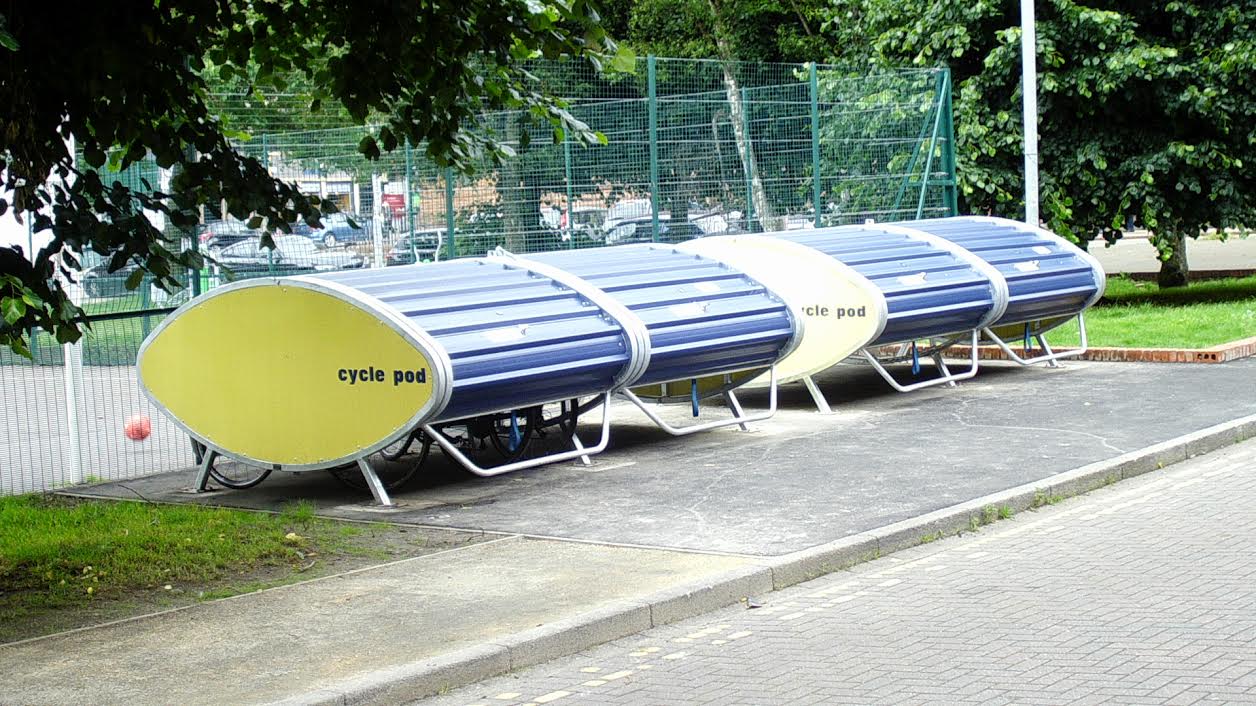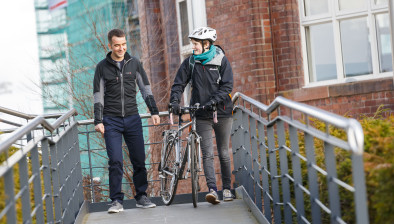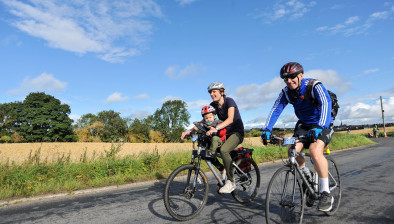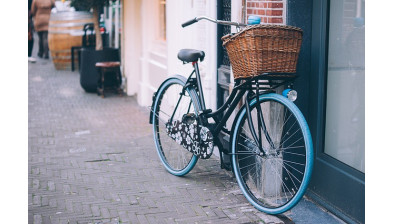Third of Scottish households ‘have no safe place to store bikes’

Cycle storage pods
More than a third of people living in Scotland don’t have a safe and secure place to store their bikes at home with people living in high-rise buildings, tenement flats and apartment blocks being the worst affected, a new report has shown.
Research by the country’s national cycling group Cycling Scotland found of the 2.6 million residential properties in Scotland, just over 37% (980,290) are flats in tenements, high-rises and apartment blocks that have no private outdoor space for sheds or garages where people can safely store their bikes.
The issue is felt more acutely in local authorities with the highest percentage of flats as a proportion of all residential properties: Glasgow (72%), Edinburgh (65%), Aberdeen (55 %), West Dunbartonshire (51%) and Dundee (51%).
The independent report commissioned by Cycling Scotland to understand the barriers to residential cycle storage also found:
- In the absence of proper storage, people are forced to lock their bikes in communal closes, stairwells, hallways, balconies, railings – or in their homes.
- Almost half (46%) of social housing residents are unlikely to have somewhere suitable to store a bike.
- In addition to being more likely to have no bike storage, people living in social housing are four times less likely to own a car than owner-occupiers; having a safe storage place is even more important if they want to use their bikes to access employment, education, and vital services reliably and affordably.
- Retro-fitting cycle storage in residential areas is limited. Just two Scottish local authorities, Edinburgh and Glasgow – where the percentage of people living in flats is highest – are implementing city-wide on-street bike-parking schemes.
- There is no requirement to provide residential cycle storage in national planning and transport policies, and little detail about minimum standards.
- Local planning policies and guidance are the most influential factors in determining the level and quality of cycle storage on new residential developments. Planning policies and guidance among Scottish local authorities on cycle storage vary significantly with most only making brief reference to provision and few giving any detail about cycle-storage standards.
- The differing needs of people who cycle – particularly those who use non-standard bikes or who are disabled – are unrecognised.
Kath Brough, head of behaviour change at Cycling Scotland, said: “Lack of safe, secure, covered, accessible and conveniently located cycle storage is a barrier to owning and using a bike.
“We know from research that a third of people in Scotland say not having somewhere to store a bike prevents them from cycling for everyday journeys, and this particularly affects those from lower socio-economic groups.
“As we face a cost-of-living crisis, it’s urgent that we do everything we can to make it easier for people to make affordable journeys – and a bike helps people to reach employment, education and essential services reliably and cheaply.
“Residents in high-rise buildings, tenement flats and apartment blocks cannot reasonably be expected to keep cycles within the property and the availability of suitable secure cycle storage nearby is often scarce. This issue has become more prevalent in recent years as fire safety policies – which understandably prohibit the storage of cycles in common areas such as stairwells – are being enforced more consistently.”
Minister for active travel, Patrick Harvie, said: “I welcome this important report from Cycling Scotland, which clearly highlights the importance of safe and secure cycle storage in our communities.
“We need to make it easier for people to choose cycling for so many reasons – and the lack of storage options remains a real barrier, particularly to people living in flats and tenements. Where provision does exist, it’s important that it remains affordable and is inclusive to the needs of all.
“We’ve made some progress in this area, but we need to see much more and will look closely at the recommendations made by this report. The Scottish Government is providing funding to local authorities and registered social landlords, delivered through the expertise of Cycling Scotland – and we continuously look at the effectiveness of our funding approaches and how we can build and improve.
“With record funding now available in Scotland, and a commitment to investing £320m or 10 per cent of the transport budget on active travel by 2024/25, we’re committed to building an Active Nation and making it easier for people to walk, wheel and cycle for everyday journeys.”
The report makes a series of recommendations:
- Strengthen national policy and guidance including the development of minimum standards for residential cycle storage.
- Require local authorities to include more detail about both the quantity and quality of cycle storage in new residential housing and to develop plans for retrofitting cycle storage in existing areas of high-density housing.
- Provide increased financial support for cycle storage, particularly for retrofitting.
- Raise awareness, provide training and share knowledge and good practice about the need for and delivery of good quality residential cycle storage.
Ms Brough added: “If we get the provision of safe and secure cycle storage right, it could have a transformative effect on the number of people cycling in Scotland. We aim to work with the Scottish Government and partners at a national and local level, to make sure that everyone in our country has a safe and appropriate place to store their bikes.”









